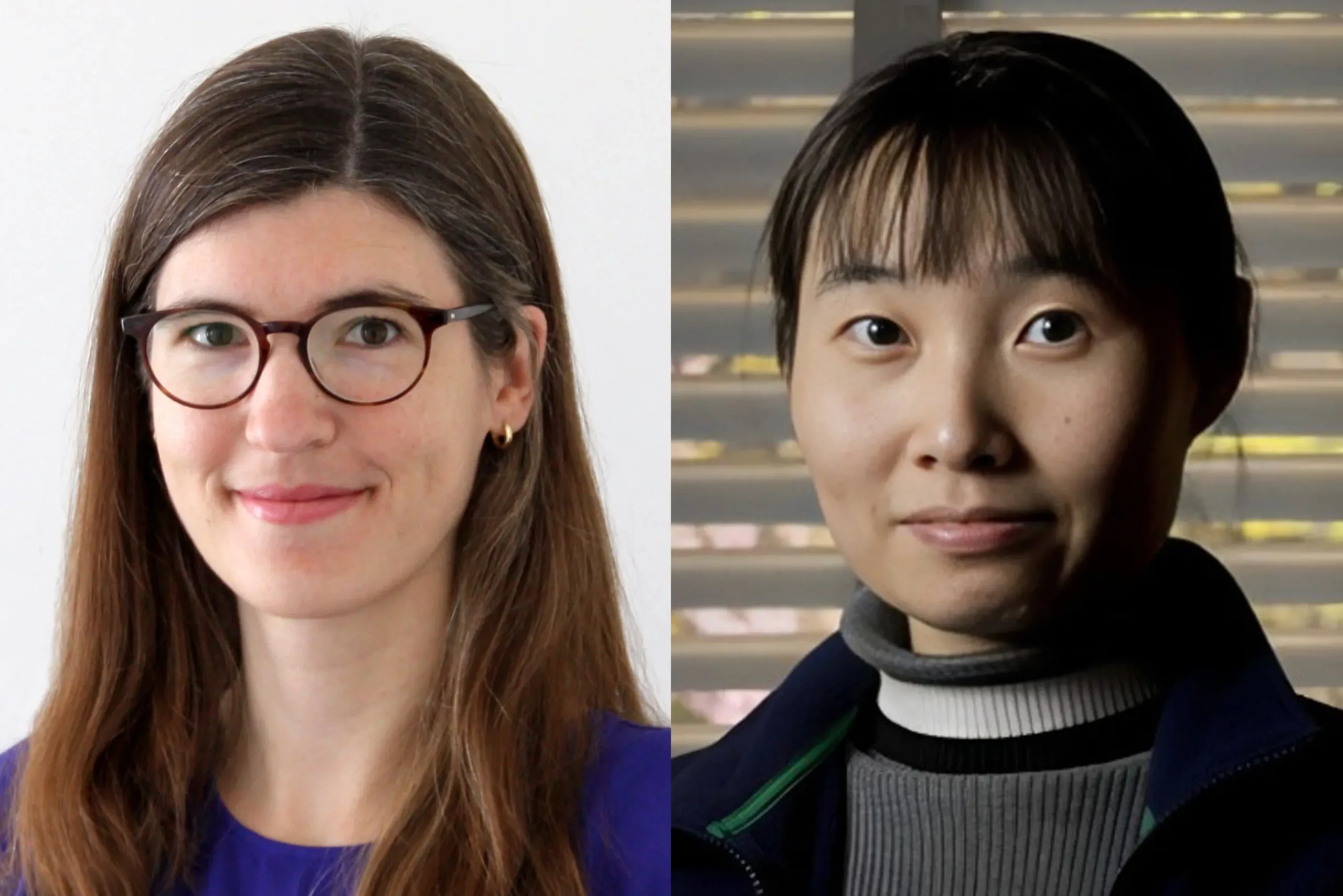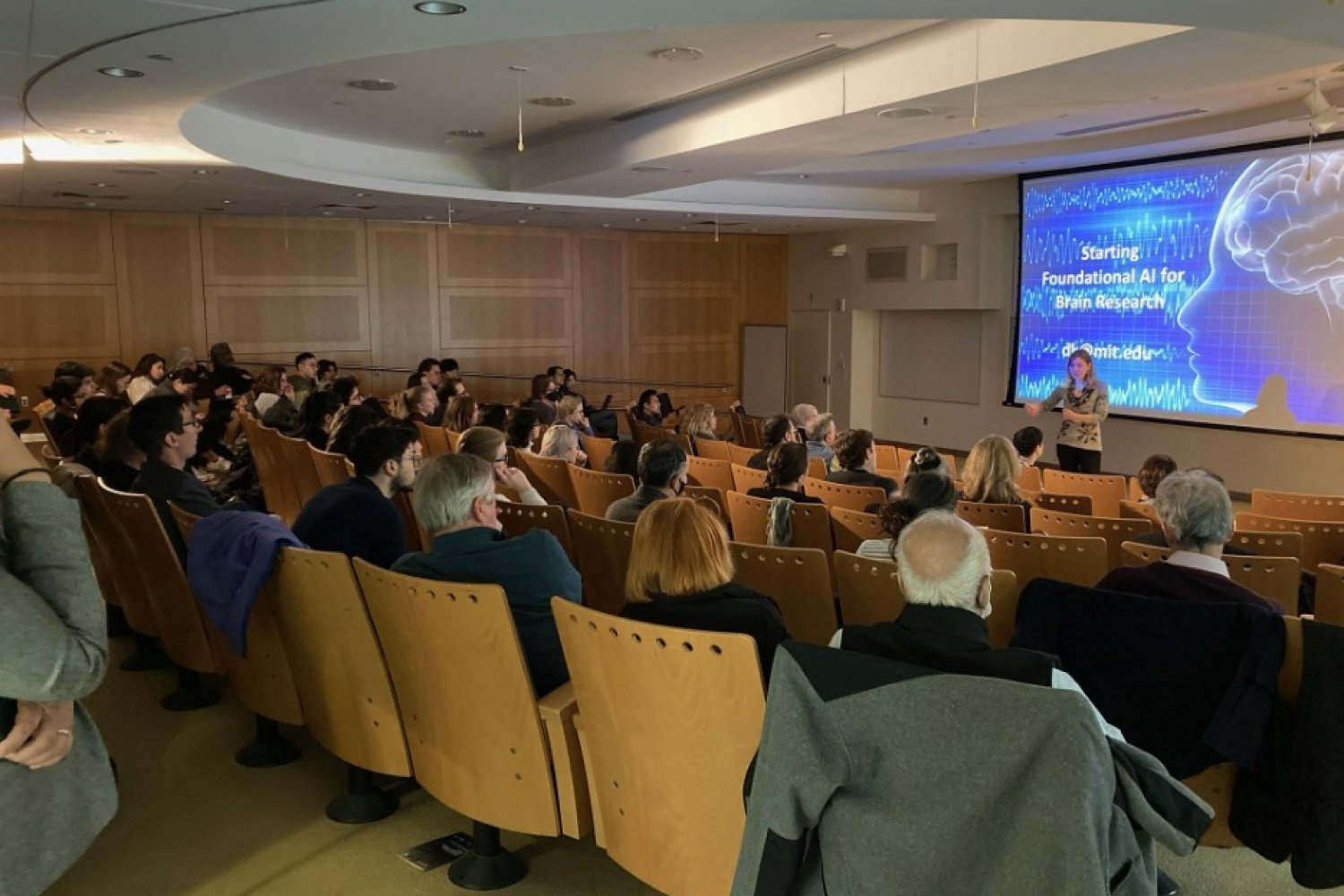MIT professors Laura Lewis and Jing Kong have been honored with the MIT Postdoctoral Association’s Award for Excellence in Postdoctoral Mentoring. This prestigious award is presented annually to faculty members or principal investigators (PIs) recognized by their current and former postDocs for their outstanding efforts in cultivating a supportive work environment and promoting professional growth.
This year, the award recognized remarkable mentors in two distinct categories. Dr. Lewis, who holds the title of Athinoula A. Martinos Associate Professor in the Institute for Mechanical Engineering and Science as well as in the Department of Electrical Engineering and Computer Science (EECS), earned recognition as an early-career mentor. Meanwhile, Dr. Kong, the Jerry McAfee (1940) Professor in Engineering at the Research Laboratory of Electronics and EECS, was acknowledged as an established mentor.
“Mentoring postdocs require a diverse approach,” said Vipindev Adat Vasudevan, chair of the Postdoctoral Association committee that organized the award. “Each postdoc has unique needs; some are aiming for industry while others pursue academia. Every individual comes with distinct objectives.”
The award was presented during a luncheon hosted by the Office of the Vice President for Research on September 25 in celebration of National Postdoc Appreciation Week. The annual event highlights the valuable contributions the postdoctoral community makes to MIT, drawing hundreds of postdocs and faculty attendees.
Ian Waitz, vice president for research, acknowledged at the luncheon, “The award celebrates faculty members who excel in fostering a professional, supportive, and inclusive atmosphere, empowering postdocs to thrive.” He emphasized the essential role postdocs play in propelling MIT research forward, mentoring students, and building global research networks, all while striving towards their independent research careers.
“The best part of my job”
Nomination letters for Laura Lewis praised her talent for cultivating an inclusive and welcoming lab environment. “She dedicates significant time and energy to fostering personalized mentoring relationships, ensuring every postdoc in her lab receives tailored guidance conducive to their goals and circumstances,” noted one nominator.
Other nominations highlighted her commitment to facilitating collaborations that advance the research goals of her postdocs. Lewis encourages them to engage with other PIs, fostering independence and professional development while allowing them to pursue their unique research questions. “I was never pressured to focus on her work; instead, she guided me towards discovering and building my own,” one individual reflected.
Lewis’ lab is at the forefront of developing innovative techniques for imaging the human brain, blending engineering with neuroscience. Enhancing neuroimaging techniques may yield significant insights into how the brain functions during both sleep and wakefulness, advancing our understanding of sleep’s impact on overall brain health.
“Mentoring my postdocs and trainees is genuinely the highlight of my job,” Lewis expresses. “It’s crucial for individuals to be in an environment that fosters their growth toward their aspirations.”
As an early-career mentor, Lewis eagerly anticipates witnessing her postdocs’ career trajectories over time. She appreciates when group members return as collaborators, bringing in new ideas and creative solutions, asserting, “I see this mentoring relationship as lifelong.”
“No ego, no bias, just solid facts”
Jing Kong’s nomination reflects a similar ethos regarding lasting mentorship. The 13 letters written in support of Kong hailed from both past and current postdocs, almost unanimously commending her kindness and the respectful atmosphere she nurtures in her lab, combined with her high standards for scientific rigor.
One nominator summed it up beautifully: “No ego, no bias, just solid facts and clear evidence. During discussions, she prompts you to ask yourself, ‘Why didn’t I consider that?’ or ‘I should have thought of that myself.’”
Kong was also lauded for her long-term perspective on projects, skillfully guiding postdocs through short-term challenges. One nominator shared an experience during a project phase that yielded unexpected results, stating, “Jing didn’t pressure me to change course; she was always open to discussing the new findings. Because of her encouragement and ongoing support, I ultimately achieved notable success in this project.”
Kong’s research focuses on the chemical synthesis of nanomaterials, including carbon nanotubes, aimed at characterizing their structures and discovering potential applications. According to Kong, postdocs are vital in introducing fresh ideas to the lab.
“I learn tremendously from each postdoc; they each bring unique perspectives and talents to the table. The exchange of knowledge is mutual,” she states. In her mentorship role, she prioritizes nurturing the specific talents of her postdocs while promoting collaboration among team members with varying strengths.
The collaborative spirit Kong cultivates extends well beyond the postdocs’ tenure at MIT, viewing this phase as a crucial opportunity to forge professional connections. “Their networking begins from day one in the group, establishing links with other members and our collaborators that will persist for years to come,” she explains.
About the Award
Since its inception in 2022, the Award for Excellence in Postdoctoral Mentoring has aimed to honor outstanding mentorship practices at MIT. With contributions from Ann Skoczenski, director of Postdoctoral Services in the Office of the VPR, and the Faculty Postdoctoral Advisory Committee, nominations undergo a review process based on four key criteria:
- Excellence in promoting professional skill development and fostering independence;
- Ability to create an inclusive work environment that empowers postdoctoral mentees from diverse backgrounds;
- Support for postdoctoral mentees pursuing their desired career paths;
- A commitment to maintaining a professional mentoring connection beyond the postdoctoral term.
The Award for Excellence in Postdoctoral Mentoring includes a celebratory lunch for the recipient’s research group and provides opportunities for participation in a mentoring seminar or panel discussion for the postdoctoral community. Last year, Jesse Kroll, the Peter de Florez Professor of Civil and Environmental Engineering and Professor of Chemical Engineering, received the award, recognizing her remarkable contributions to mentoring.
Photo credit & article inspired by: Massachusetts Institute of Technology



